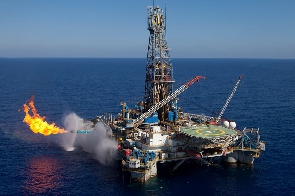 Crude oil production in Ghana keeps declining
Crude oil production in Ghana keeps declining
Crude oil production has been a significant part of Ghana’s economic growth since the country first discovered oil in commercial quantities in 2007.
However, in recent years, Ghana has experienced a steady decline in production, raising concerns about the implications for national revenue and the broader economy.
Key oil fields in Ghana
Ghana’s oil production is primarily sourced from three major fields:
Jubilee Field – The first major offshore oil discovery in Ghana, and a leading contributor to national output.
TEN (Tweneboa, Enyenra, and Ntomme) Field – Another major offshore field supporting national oil production.
Sankofa Field – A newer development that also contributes to Ghana’s oil output.
These fields form the backbone of Ghana’s oil industry, but as they mature, their output is gradually declining.
A recent GhanaWeb Business article sheds light on how the persistent drop in crude oil production is negatively affecting Ghana’s petroleum revenues, and by extension, the Petroleum Holding Fund.
Why is production declining?
According to data from the Petroleum Commission and the Public Interest and Accountability Committee (PIAC), Ghana’s oil production has declined steadily over the past four years.
The key reasons include:
Mature Fields: As oil fields age, they naturally experience a drop in output. Both Jubilee and TEN have been operational for years and are producing less than before.
Delayed New Developments: Ghana has yet to fully develop other offshore reserves, limiting the country’s ability to offset declining output from existing fields.
Technical and Investment Challenges: Offshore deepwater operations are capital-intensive and technically demanding, which can delay new exploration and production efforts.
How is petroleum revenue affected?
The impact of declining crude oil production on petroleum revenue is substantial.
Here’s how:
Lower Export Earnings: With reduced production, there’s less oil to sell, which directly affects government income from royalties, corporate taxes, and Ghana’s share of profit oil.
Budget Shortfalls: Petroleum revenue plays a crucial role in funding public expenditure, including education, health, and infrastructure. Declining revenue could force the government to borrow more or cut spending.
Weakened Stabilization Funds: Ghana sets aside oil earnings in funds like the Ghana Stabilization Fund to cushion against economic shocks. With falling revenue, these reserves may dwindle, weakening the country’s fiscal resilience.
Currency Pressure: Oil exports are a major source of foreign exchange. Reduced inflows can put pressure on the Ghanaian cedi, potentially leading to depreciation and inflation.
Investor Confidence and Growth Outlook: Declining output may signal operational and policy risks, deterring future investment and slowing the sector’s long-term growth.
The way forward
The decline in crude oil production highlights the urgent need for Ghana to diversify its economy and revenue sources.
Experts warn that without significant reforms, new investments in oil exploration, and a strategic shift toward renewable energy, the country could face prolonged revenue instability.
A broader approach may involve expanding Ghana’s mining sector and developing other productive industries to reduce overdependence on oil.
Conclusion
While crude oil production remains a cornerstone of Ghana’s economy, the sustained decline in output calls for bold, proactive measures. Stabilizing production, investing in new exploration, and broadening the national revenue base are essential steps toward long-term economic sustainability.
SP/MA
Watch the latest edition of BizTech below:
Click here to follow the GhanaWeb Business WhatsApp channel
